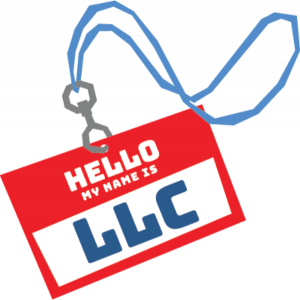How To Start An LLC In Missouri
Starting an LLC in Missouri means your business can pick a management structure and tax status that works best for you, and enjoy strong liability protection to keep your personal and business assets separate. In Missouri, you’ll need to pay $52 to file online, or $105 if you file by mail. Unlike most states, Missouri does not require you to file an annual report for your LLC.
To get your LLC registered, you’ll need to fill out paperwork called Articles of Organization, then submit that paperwork to the Missouri Secretary of State’s Corporations Unit. You can handle the paperwork yourself, or hire someone like Northwest to do it on your behalf. Once the Articles are submitted, you must take other steps to secure your privacy and comply with federal government requirements. Here’s how to get it all done.

1. Name Your LLC
Your first priority is naming your LLC. The full text of Missouri’s business naming law can be found in Mo. Rev. Stat. § 347.020. In general, your LLC’s name must:
- Include the words Limited Liability Company, or an accepted abbreviation like LLC.
- Not include words or abbreviations implying your business is a different entity type, such as Limited Partnership or Inc.
- Not currently be in use by any other business in Missouri. If you already have a name in mind, run a business name search on the Secretary of State’s website to see if it’s available.
Tip: If your name is available in Missouri, that’s good news. But that’s not the end of the story. Your business name might still be trademarked federally, which could leave you on the wrong side of a lawsuit down the line. Run a trademark clearance search first for peace of mind.

2. Register Your Domain Name
After choosing your LLC’s name, a good next step is locking down a domain name for your business website. Your domain name (URL) is the web address to your site.
A professional domain name should be easy to remember—and ideally, match or complement your business name. When you register your domain name early, you’re more likely to get a name that meets those standards.
You’ll need to claim a business domain name through a registrar. When you hire Northwest to form your LLC, domain registry is one of many in-house services we provide, so you also get a domain name free for a year, plus your own customizable business website secured with SSL protection, and up to ten email business addresses connected to that domain.

3. File Missouri Articles of Organization
Articles of Organization are what you submit to the Missouri Secretary of State’s Corporations Unit. Once the paperwork has been submitted, the Secretary of State’s office will check it for any issues or errors. If there are none, Missouri will approve your business, and your LLC will officially be formed.
Tip: Everything you list on this form becomes part of the public record. If you want to keep your personal information private, you can hire a professional registered agent.
Your Missouri Articles of Organization should include the following info:
Your LLC’s name must include the words Limited Liability Company, Limited Company, or an approved abbreviation like LLC. Make sure the business name is available first.
Feel free to write something generic like to engage in lawful business activity in Missouri. You can also get more specific here, but it’s not required.
A registered agent is the person or entity who will receive legal mail on behalf of your LLC. This means if you get served with a lawsuit, a registered agent will be the one receiving service of process for that lawsuit. Once the registered agent has been served, they must get the paperwork to you as soon as it’s feasible to do so. It’s not something that can wait until next week. Missouri law requires every LLC to have a registered agent. Your registered agent must:
- Have a physical address (not a P.O. Box or virtual office) in Missouri. In Missouri, you can also list a PO Box, but only in addition to the physical address.
- Be present at their address during regular business hours.
- Accept legal mail in person on behalf of your business and forward it to you ASAP.
Tip: If you meet the above requirements, you can act as your own registered agent. But if you were hoping to live more privately with an LLC, it’s best to hire a professional like Northwest to tackle the job.
List whether your LLC will be managed by members or managers. In a member-managed LLC, members (owners) are responsible for running the LLC on a day-to-day basis. In a manager-managed LLC, members appoint or hire a manager or managers to take care of daily operations. Whoever manages your LLC will be able to do things like open and close bank accounts, hire and fire employees, and enter into contracts.
Most people write perpetual here because they have no specific end date planned for their LLC. If you do have an end date in mind, list it here.
List the name of the person filling out your Articles. It can be a registered agent, but it doesn’t have to be. They must also list a physical address.
Only fill out this section if you’re planning to create an LLC made up of separate units, known as a Series LLC. Skip it otherwise.
Leave this blank if you want the effective date to be the day the Secretary of State approves your Articles of Organization. But if you want to delay starting your LLC, you can list a date up to 90 days in the future.
This signature doesn’t have to come from a member of your LLC. It can be anyone, including someone you hire (like Northwest).
How Do You File Missouri Articles of Organization?
When we say “file,” we simply mean submitting your LLC’s paperwork to the Missouri Secretary of State’s Corporations Unit. You can file online, by mail, or in person.
By mail or in person:
Corporations Unit
P.O. Box 778 / 600 W. Main St., Rm. 322
Jefferson City, MO 65102
Online:
Missouri Business Registration Online Portal
After filing your Articles of Organization with the Missouri Secretary of State, your LLC is officially in business! Here’s how to maintain compliance and keep your business running smoothly after formation:
Keeping Your Missouri LLC in Good Standing

4. Write an LLC Operating Agreement
An operating agreement is a handbook for how your LLC will operate. It includes information on how the LLC will do things like vote, handle disputes, and distribute profits. It should also outline the proper procedure for less routine matters—for example, dissolving the LLC.
An operating agreement is considered an internal document, which means you don’t have to file a copy with the state. But you must still have one on record to remain compliant with Missouri state law. If you don’t draft an operating agreement, your LLC will be subject to Missouri’s default LLC laws.
Tip: Writing an operating agreement isn’t as natural for most people as, say, writing an email. We had our attorneys draft an operating agreement exclusively for Missouri, and you can access it for free.

5. Get an EIN
Most LLCs need an EIN, which stands for Employer Identification Number. An EIN is a nine-digit number that’s assigned by the IRS to your business. You need an EIN primarily to pay taxes, but also to do things like apply for loans and open a business bank account. It’s also more secure to list your EIN on forms instead of your social security number.
You can apply for an EIN by going to the IRS website. If you’d rather not deal with the hassle, you can hire us to get an EIN for you.

6. Get a Business Bank Account
Mixing your personal finances with your business finances is not a good idea. When you mix the two, a court may decide that you and your LLC are same, legally speaking. Opening a business bank account will help you avoid that situation. When you go to the bank to open a business account, make sure to bring three things: your EIN, operating agreement, and an LLC Resolution to Start a Bank Account.








